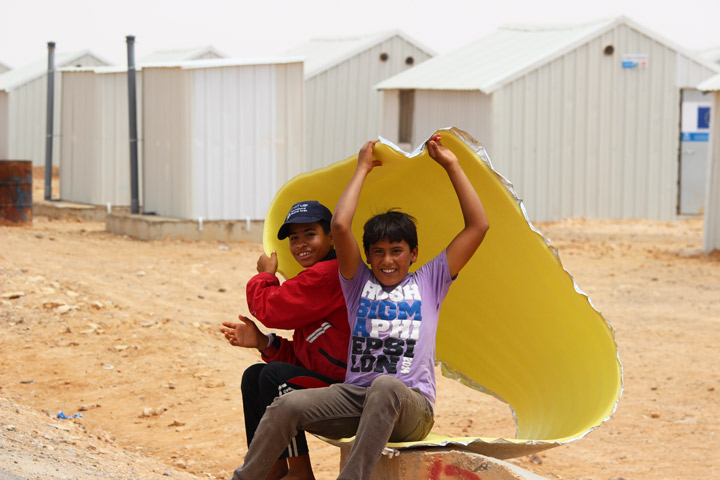There are over two million Syrian refugees currently registered in neighbouring Middle Eastern countries, and the new Liberal government has pledged to bring 25,000 of them to Canada by the end of 2015.

But how do you choose who gets to come?
One idea that the CBC and Ottawa Citizen are reporting is that the government is considering to prioritize children, women and families – which could leave single men out of luck.
READ MORE: Lewis MacKenzie says Canada must prioritize refugee widows, children
Details of the government’s plan will be announced Tuesday, though some are already suggesting that leaving out single men could be a bad idea.
“I mean obviously it does raise concerns if a whole group of people is being excluded,” said Janet Dench, Executive Director of the Canadian Council for Refugees.
“If you start introducing criteria that exclude certain kinds of people than you are necessarily going to include certain people who have protection needs,” she said. Gay men, for example, could fall under that umbrella – and they would certainly be in need of protection, she said.
The government should prioritize those who are most in need of protection, no matter their gender, religion or other characteristics, she said. She hopes that the government isn’t completely excluding single men – just recognizing that they might require extra screening, which might take longer than the Dec. 31 deadline.
“I hope what we’re talking about is that because of the security process it will take a bit longer to clear the young men before travel to Canada. Maybe it is not meant as a complete across-the-board rule, that all young men are going to be delayed.”
Errol Mendes, a professor of international law at the University of Ottawa, also hopes that the government doesn’t decide to enact a blanket ban on single men. “Alan Kurdi’s father is now a single man. Does that mean that we won’t take him?” he asked. “We absolutely have to make sure that we’re not so scared by the security fears that we have no exceptions whatsoever.”
Immigration lawyer Guidy Mamann said that the perceived risk is definitely what would drive such a ban, if it happens. “The only way you can possibly get the RCMP and CSIS and the CBSA to agree to this is if you eliminate that group that represents the greatest security risk, so by selecting women and children you’ve minimized the risk.”
Mendes questions the idea that refugees are a particular security risk though. Although one refugee claimant, Raed Jaser, was convicted of plotting to blow up a VIA Rail train, he’s very much in the minority – and his claim had been denied. More than 263,000 refugees arrived in Canada between 2005 and 2014, but Canada’s two terror attacks last year were both carried out by Canadian-born men.
“We have to understand that it’s far easier for terrorists to come on tourist visas or business or student visas than as refugees,” said Mendes.
READ MORE: Should Canada stop bringing in Syrian refugees because of the Paris attacks? Experts say no.
Leaving single men behind carries risks too, he said. “The greatest number of potential recruits are in the camps in Turkey or Lebanon or Jordan. And some of them have been there, in the case of Jordan, some of them have been there for years. And if there is no hope whatsoever for them, think about what the potential breeding ground for radicalization is in those camps.”
He hopes that Canada will think about providing opportunities for job training and other development activities along with humanitarian aid for the region.
With that said, he does think that children should be the priority. “There is no doubt that the most vulnerable are children.”
Jane Philpott, federal minister of health and chair of the ad hoc committee on refugees, said Monday that while details will come Tuesday, the government will use “internationally-recognized criteria” to determine who is in the most need of help.
“You’ve probably heard us say right from the beginning when we launched this important effort, that our priority has always been around addressing the most vulnerable people and that’s still the priority.”



Comments